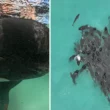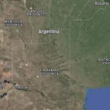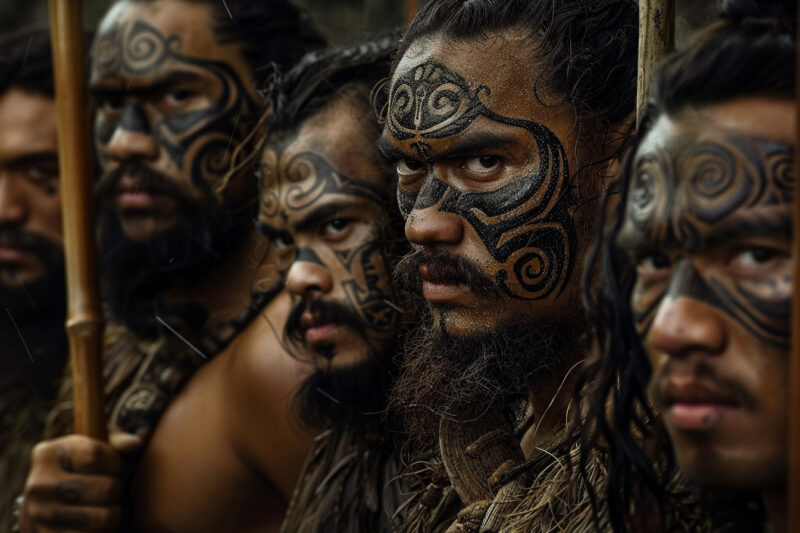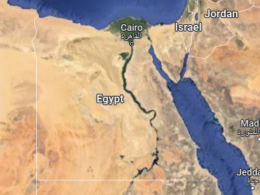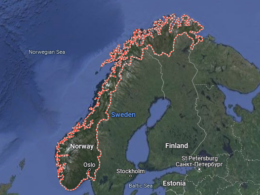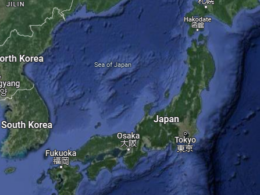In the intricate tapestry of human history and culture, few threads are as vibrant or as complex as those belonging to the Maori of New Zealand. Central to Maori culture is the concept of mana, often understood as honor, status, or spiritual power. For Maori warriors of old, this intangible strength was the cornerstone of their way of life, their actions in battle, and their post-war rituals, including the deeply controversial practice of eating their conquered enemies.
Understanding Mana
Mana was, and remains, a core element of Maori culture. It is a force that could be accumulated by warriors through acts of bravery, leadership, and success. Mana was not merely a personal attribute; it was a measure of influence that extended to one’s family and tribe, reflecting the interconnectedness of individual and community prestige in Maori society. The pursuit of mana was integral to every aspect of Maori life, influencing decisions, relationships, and even conflicts.
The Role of Mana in Daily Life
Mana was not only relevant in times of war but also played a crucial role in daily interactions and community governance. Chiefs (rangatira) and leaders were often those who had amassed considerable mana, leading with the respect and authority that came from this spiritual power. This concept also dictated social etiquette, alliances, and the distribution of resources within tribes.
The Ritual of Cannibalism
Cannibalism among Maori warriors is a subject that has captured the imagination and horror of many. This practice was not driven by necessity but was a part of complex cultural rituals. Consuming the flesh of a defeated enemy was believed to be the ultimate insult, depriving the enemy of their mana and absorbing it into one’s own being.
It was an act that desecrated the enemy’s tapu (sacredness) while enhancing one’s own. This ritual, while shocking to outsiders, was deeply embedded in the Maori spiritual and social framework, serving as both a psychological weapon and a means of maintaining social order.
The Symbolism of Cannibalism
To the Maori, cannibalism was a potent symbol of dominance and superiority. It was a way to manifest the transfer of power and ensure the vanquished enemy could not haunt or challenge the victor from the afterlife. This practice was also a demonstration of the victor’s mana and an affirmation of their status within the community.
The Changing Practices
As with many indigenous cultures, Maori traditions, including those related to warfare and mana, evolved significantly over time, particularly with the arrival of European settlers and the subsequent colonization. The practice of cannibalism faded as the Maori adapted to the changing world, embracing Christianity and new societal norms.
The introduction of European weapons and tactics also transformed Maori warfare, leading to shifts in how mana was perceived and pursued. These changes marked a significant transformation in Maori society, as they navigated the pressures of colonization and cultural integration.
The Impact of Colonization
The arrival of Europeans brought profound changes to Maori society. Missionaries introduced Christianity, which clashed with and eventually altered many traditional practices. European settlers’ demand for land led to conflicts and significant disruptions in Maori life. Despite these challenges, the Maori adapted, blending aspects of their traditional culture with new influences to survive and thrive in a rapidly changing world.
Revisiting the Past
Today, the Maori look back on their history with a nuanced understanding. While cannibalism is a practice long abandoned, the respect for mana remains. The Maori warriors of the past are remembered not only for their fierceness in battle but also for their complex societal structures, their intricate belief systems, and their profound connection to their land and their ancestors.
This reflection allows contemporary Maori to honor their heritage while fostering a sense of identity that is both rooted in tradition and open to modern influences.
Modern Mana
In contemporary Maori culture, mana is still a vital concept, though its expressions have evolved. Today, mana is often associated with cultural achievements, leadership in various fields, and contributions to the community. The preservation and revitalization of the Maori language (te reo Maori) and traditional arts are seen as ways to maintain and enhance mana in a modern context.
Honoring the Complexity of Maori History
Discussing the practices of the Maori warriors requires a careful balance between acknowledging historical realities and respecting the living culture that has grown beyond them. The reputation of Maori warriors eating their enemies to capture mana is but a fraction of a much richer narrative that speaks to the depth of Maori spirituality and social organization.
In recognizing this, we honor the full spectrum of Maori history—the valor of the warriors, the sanctity of their traditions, and the resilience of a culture that has navigated the turbulent waters of colonization to reclaim and revitalize its identity in the modern world.
The Legacy of Resilience
The Maori people’s ability to adapt and thrive despite the challenges of colonization is a testament to their resilience and strength. Their ongoing efforts to preserve their language, traditions, and lands are crucial in maintaining their cultural identity. The Maori continue to contribute to New Zealand’s national identity, enriching the country’s cultural mosaic with their unique heritage and perspectives.
By exploring these aspects, we can appreciate the intricate and dynamic history of the Maori people, recognizing their contributions to the broader human story and their ongoing journey of cultural preservation and adaptation. Understanding the depth and complexity of Maori history allows us to honor their past while celebrating their present and future.
**Please note that this post may contain affiliate links. When booking through one of our links, we earn a small kickback at no extra cost to you and it’s a big help to keep the site up and running.


